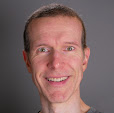How Atom Clumps Choose
[This is a response to Steve Berthiaume's blog entry at http://tinyurl.com/ghofm. I put it here because it is quite long and so is more appropriate as my own blog entry rather than as a comment on Steve's blog.]
Let's say there are two perspectives on people: one, that they are conscious, choosing agents, volitionally creating their own knowledge, action and character, and the other, that they are collections of atoms doing only what natural law dictates for them.
Let's assume the second perspective for now, without rejecting volition as such.
The big question is: "How can human atom clumps make choices."
Given the premise that we are atom clumps, the question of what a "choice" is must be redefined. Remember, atom clumps are atom clumps, so we cannot speak of a conscious agency inside them in this context. We can only talk about the atoms.
So if we say an atom clump is choosing, just what are we saying? Are we saying that some atom within the clump swerves left when Newton, Einstein, and all future geniuses of physics would predict it to go right? Many Objectivists would answer "yes." If they are right, then it would seem volition is to be based on an apparent violation of physical law. That's a bit hard even for me to swallow.
So let's assume these Objectivists are wrong, and that we'll never find a specific locus of volition by means of physical research. Would that spell the death of the Objectivist theories of volition and self-creation and self-responsibility? I don't think so.
Back to my initial question: What must we mean, then, if we are to say an atom clump "chooses"? We must mean that in a particular respect, we have no way of predicting what that atom clump will do, and that the ultimate cause of which path of action the atom clump takes is not attributable to any specifically identifiable factor(s) in the atom clump's present or past environment nor any specifically identifiable factor in the clump's physical makeup or state.
It is the idea is that the clump behaves as an unpredictable agent that might even outsmart us, and that there really is no reason not to treat said clump as an agent that deserves full responsibility and credit for its actions. (It's really that the atom clump is a person, but we can't use the P-word here.)
There are two current fields of physical science that might eventually explain the choosing we observe in atom clumps. One is quantum mechanics, the other is chaos theory. I'm not going to completely advocate either of these fields here, but I'll just describe how "science" can actually come down on the side of volition rather than of determinism.
A fundamental of quantum mechanics is that the smaller particles get, the more random their behavior gets, to the point where the paths of very small particles become virtually, if not totally, impossible to identify.
Chaos theory highlights the sensitivity of the behavior of large scale systems to the prior state of each smaller part of the system. In a chaotic system, an arbitrarily small perturbation of the initial state of the system eventually results in large scale behavioral differences. Previously immeasurable aspects of the system eventually cause macroscopic behavioral change. Chaotic systems are therefore generators of unpredictable behavior.
Even without quantum effects, chaotic systems would still be unpredictable long-term. Adding in quantum effects makes the term of predictability of such systems much shorter. It isn't hard to believe that in human atom clumps, such term is on the order of seconds or less.
Combining these two theories together, one can understand the possibility that there is not and never will be a way to predict the future behavior of a human physical system in terms of an arbitrarily great knowledge of its current physical state. No matter how hard you try, and no matter how fast a computer you use, quantum effects, truncation error, and chaotic effects are going to bite you.
And for those people who require, in their belief system, a way for consciousness to "wiggle" (and be wiggled by) atoms, they now have it, because the quantum and chaos theories have provided a way for such wiggling to happen under the radar of possible physical measurement. There is now no way to assert that such wiggling doesn't happen -- because it would not be localizable nor measurable.
The conclusion is: physical law is not sufficient to predict the behavior of human physical systems. If you want to predict people, it is more productive to use the sciences of consciousness than the physical sciences. And a proper science of consciousness must take into account the above-identified fact about atom-clumps: that in a crucial respect, they choose their own knowledge, action, and character.
Labels: determinism, free will


0 Comments:
Post a Comment
<< Home